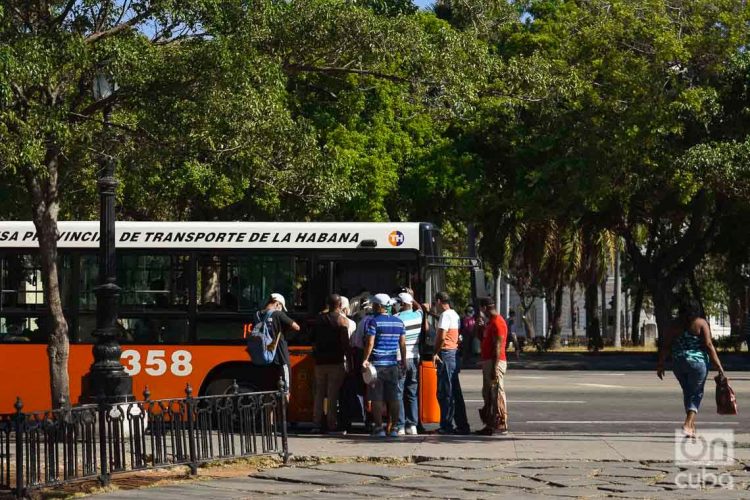Havana is facing one of the most serious transportation crises in the last 10 years, with less than 500 vehicles available to transport more than half a million people daily, sector authorities reported.
To illustrate the serious problem, the authorities have explained that at the beginning of the COVID-19 pandemic, 780 buses were operating in the capital, while the enterprise that manages them today has “just 442 vehicles, moving 580,000 passengers per day, a figure much lower than that of 2020.”
In a meeting held this week, Rauger Medina Suárez, director of planning and development of the Havana General Department of Transportation (DGTH), reported that measures are being taken with different institutions to solve the complex situation, according to information published in national media.
However, the director himself has argued that a plan of measures “will not completely resolve the transportation situation we have today, because it is clear that what is needed is buses and today we do not have them.”
Among these measures is the incorporation of 54 buses from different work centers that have their own means to move their workers, among which are BANDEC and the University of Computer Sciences. These will offer services in areas of Centro Habana, Old Havana, La Lisa and Arroyo Naranjo, between 8:00 a.m. to 3:00 p.m.
Another group of 24 buses from different institutions should join in the next few days in similar functions, in a call made by the director of planning and development of the DGTH so that more organizations join the initiative. The routes that these buses will cover will have a ticket price of 5.00 pesos in national currency, the information clarifies.
The revision of ticket prices in the state sector, as well as the call to incorporate new drivers, are other measures that will be taken by the DGTH. In this sense, the tricycles of the Neomovilidad project will be added in the first days of May, which will open routes in the districts of Fontanar, Abel Santamaría and Wajay, in Boyeros municipality.
The authorities also specified that state inspectors will be at around 311 official bus stops in Havana, barely 10% of the real need, since the city has about 3,000 pickup points.










